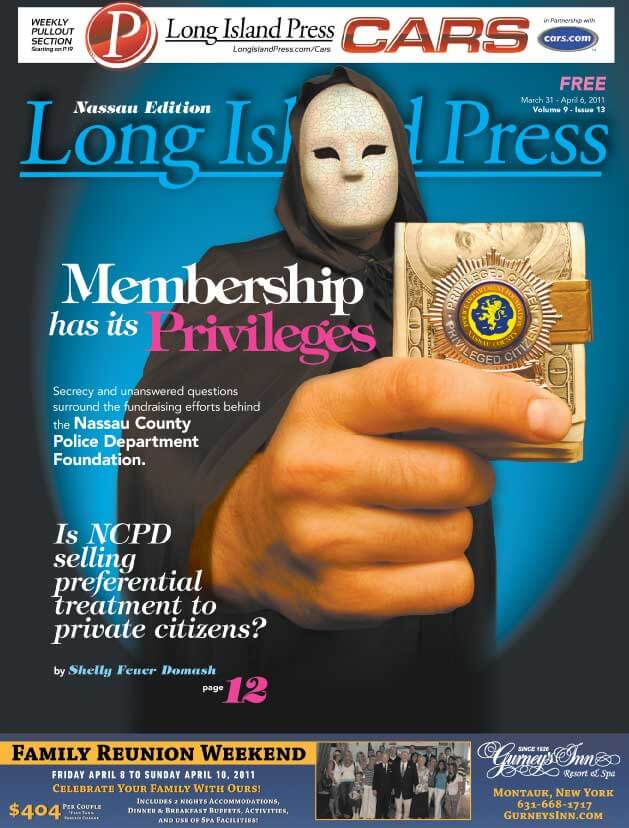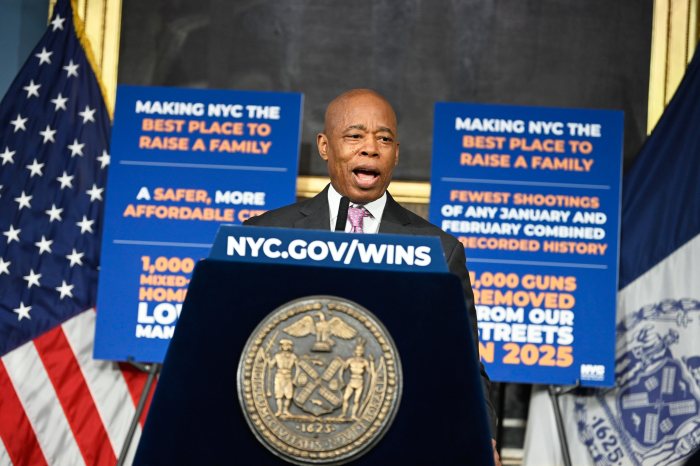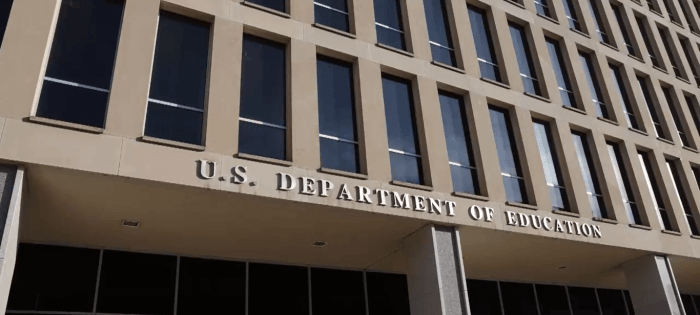While the lab investigation continues, one thing’s absolutely certain, an internal memo was sent out last March to all active police department members informing them of the foundation, its board members and that these “benevolent business executives” were to be treated differently from the rest of the public. And with more than 25 years’ experience reporting on the Nassau County Police Department (NCPD) for both a national police magazine and The New York Times, this reporter has never encountered such a level of secrecy as currently exists within the police department administration regarding the dealings of this group and its directors.
Mulvey and other police officials have repeatedly refused to identify the names and contribution amounts of foundation directors and donors. Several Freedom of Information requests from the Press—based on a state law that provides for public access to most government documents—seeking this and other data concerning the group and the county’s relationship were either outright refused or remain unfulfilled as of press time (all long past the deadlines set by New York’s Freedom of Information law). The memo offers perhaps the best glimpse into just how valued these donors are in the eyes of Mulvey and other department heads. Supporters, the Press has learned, who range from prominent local and regional businessmen to national personalities.
The questions are simple. Yet instead of providing answers, the Press has been stonewalled since last June.
Police live by the book. They uphold the law. Their motto is: “To Protect and to Serve.” Their job, by its very nature, puts them in harm’s way. As is true in many police departments across the country, the men and women in uniform typically do not air its dirty laundry—in any forum—preferring instead to hash out their in-house gripes behind the legendary and infamous Blue Wall of Silence. Yet NCPD’s whistleblowers—collectively possessing hundreds of years of service within the department and ranging in rank from chiefs to detectives—tell the Press they are simply fed up, frustrated and outraged at what has been going on regarding the foundation program and the commissioner’s policies, which, they say, has perverted the very principles of integrity upon which the police department was founded. They desire sunlight.
And it’s not just those inside the force expressing concerns over such a relationship—outside law enforcement experts and academics are equally as alarmed.
Maria Haberfeld, PhD, a professor and academic director in the Department of Law, Police Science and Criminal Justice Administration at John Jay College of Criminal Justice, has written several books on integrity in police departments.
Between 1997 through 2001, she had served as a member of a research team sponsored by the National Institute of Justice studying police integrity in three major police departments in the United States. Haberfeld expressed doubts regarding private funding of police organizations due to the obvious conflict of interest concerns inherent in such associations.
“Public organizations accepting private donations is a very controversial issue,” she tells the Press. “There can be an implied notion that there might be some sort of unethical reciprocity involved.”

































